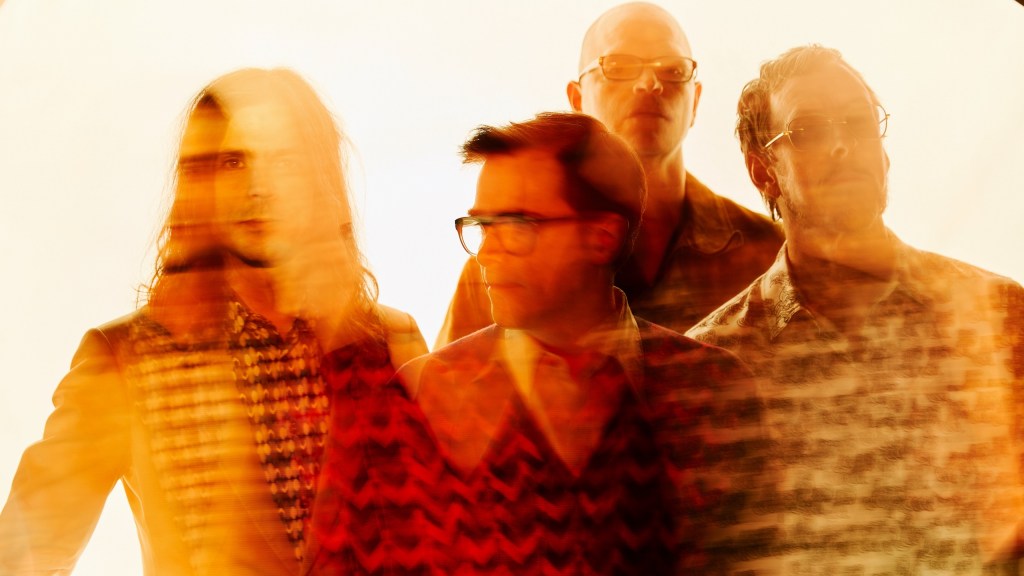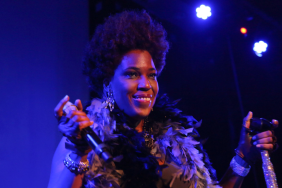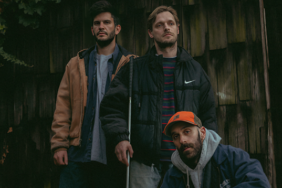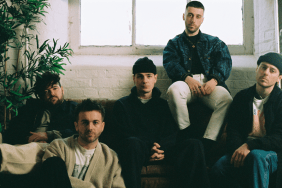In October of 2017, evergreen geeks Weezer dropped their 11th studio album Pacific Daydream. It came at a curious time – at least, in proximity to its predecessor, The White Album, which hit shelves only 18 months prior in April of 2016. Considering the band come from an era where you toured a record for at least two years, to come out of basically nowhere with an entirely new LP was certainly a surprise. According to the band themselves, it’s all a matter of ebb and flow. “It’s like we get into a groove, and once we’re out of it then it takes awhile to find your way back into the rhythm,” muses Scott Shriner, who has been the band’s bass player for almost 16 years and has played on the last 8 Weezer albums.
“There was a few years between Make Believe and The Red Album, for instance; and there was also a few years between Raditude and Everything Will Be Alright. If Rivers [Cuomo, vocalist/guitarist] has a set way of working that is effective for him, then it’s effective for all of us. Lately, the guy’s just been getting up and writing songs every single day. It’s been like that for at least a couple years – he’s a really hard-working person.”
Weezer are at an interesting crossroads as far as their own career trajectory is concerned. They have enough clout and kudos for their work in the ’90s to coast off of it for the rest of their days. Unlike many of their peers from that era, however, Weezer have remained restless. Cuomo, in particular, has seemingly been on a never-ending quest to write the band’s next ‘Buddy Holly’, the next ‘Island in the Sun’, or even the next ‘Pork & Beans’.
This might explain why, with the strong reception for The White Album, Weezer struck while the iron was hot. “The White Album did really well – it got nominated for a Grammy, and the fans seemed to really like it,” says Shriner. “We might have even gotten some new fans out of it, which is really cool. At the same time, though, I think Rivers was working with a bigger goal in mind. He just kept working even after that record was done. Unless a record is, like, super-crazy successful, then he’ll just be in a hurry to go and record a whole new bunch of songs.”
Pacific Daydream was recorded through late 2016 into the start of 2017, with Cuomo meticulously crafting every last idea and co-writing with pop songwriters such as Snow Patrol’s Johnny McDaid and hit-maker Toby Gad. Neither Shriner nor his band-mates – guitarist Brian Bell and drummer Scott Wilson – wrote or co-wrote any of the songs on the album. That may seem surprising for a band like Weezer, but it’s become a natural extension of the group itself that the creative process is forever tentative and tangible. “We’ve written a whole bunch of ways over the years – it all depends on the kind of record that we’re going for,” says Shriner.
“Albums like Make Believe and The Red Album were written and recorded quite democratically, for example. You also have a record like Maladroit, where I was still the new guy – that was my first Weezer record. I didn’t really feel like a part of the band just yet, but I still had a lot of freedom to come up with my own bass parts and ideas and things like that. With Raditude and Hurley, Rivers started running things a little more on his own.”
The conversation turns to Cuomo, who has been the band’s figurehead since its formation back in 1992. Although Shriner can obviously not speak for the early days of the band, he’s certainly made some key observations about the frontman and his dynamic within the fold of Weezer across the second half of the band’s timeline. “I’ve found he’s the kind of writer who lets others in when the time is right,” he says. “Everything Will Be Alright… was kinda open again, The White Album was kinda not open…” He laughs to himself for a second before summarising: “It’s kind of always changing, y’know? If there’s one thing I can tell you about Weezer, it’s definitely that we never make the same record twice in any way. If we’ve done things a certain way for a certain record, it’s almost like clockwork that we’ll do it differently the next time we’re all together.”
Along with the co-writers that feature on six of the album’s 10 tracks, four different producers oversaw the recording of Pacific Daydream. Chief of these was executive producer Butch Walker, who had previously worked with the band on their divisive 2009 album Raditude and has an illustrious, diverse musical history that ranges from Avril Lavigne and Carly Rae Jepsen to Fall Out Boy and Panic! At the Disco. “People seem to think someone like Butch and a band like Weezer are from, like, different sides of the tracks or something,” says Shriner of Walker’s work with the band. “That we’re from really different backgrounds.”
“I honestly don’t know if that’s entirely true – I feel like we both have the same passion for music. He’s such a fantastic musician – he really knows his way around making a song. He’s able to really nail the groove and the feel of a song. Personally, I had a really easy time working with him. He’s got this confidence where he’s really able to come forward and present his ideas on what he wants the song to be. Some might see that as closing off collaboration, but it certainly can save a lot of time.”
As an album, Shriner describes Pacific Daydream as “very dancey, with an old-school kind of vibe to it.” He points to songs like ‘Feels Like Summer’ and ‘Beach Boys’ as being unlike anything he’s worked on as a part of Weezer before. “I’m doing a bit more palm-muted, picked playing on this record, with a little bit more reverb on the bass,” he says. It serves as yet another stylistic shift from what the band was doing on The White Album, which itself felt like a reaction to the comparative heaviness of a record like Everything Will Be Alright in the End. One thing Shriner loves about being in Weezer is the fact that they have the freedom as a band to do things like this – simultaneously, every Weezer album sounds like them and also nothing like them.
“I feel like we’re always kind of fishing for what makes up the Weezer sound – what makes up the formula,” he says. “I feel like it all comes through in the songwriting and in the melodies. When all four of us are adding in our own flavours, that’s where the consistency comes in – so no matter what kind of music we’re playing, you still know that it’s us. I’ve always liked that about a band like AC/DC, where with every record you know what you’re gonna get. At the same time, though, it does make me lose interest in hearing every single record of theirs – after awhile, I feel like I kinda get it, y’know? Weezer’s very different.”
January sees Weezer returning to Australia for the first time in five years – which, in itself, was the first time the band had been here in almost 20 years. They’re returning as the main support for stadium-fillers Foo Fighters on a national run of capital-city dates, although this is not the first time the two have crossed paths. Back in 2005, each with new records to tour – Weezer with Make Believe, Foos with In Your Honor – the duo joined forces for what was known as the “Foozer” tour through North America. Shriner recalls the experience fondly, and is excited about the prospect of teaming up with the band once again. “Dave [Grohl] is so fun to be around,” says Shriner.
“He’s got such a great energy. That first tour was a pretty incredible experience for us – all those guys in the band are a real pleasure to tour with. The two bands are an interesting combination, from my perspective. Obviously, they’ve surpassed us in terms of their audience and their fan-base. However, I don’t think they’ve surpassed us in terms of songs or material.” Shriner also notes that this tour will be a real chance to show fans – especially those only invested in The Blue Album and Pinkerton – exactly what they’ve been up to in the years since they were last here. “The last time we were out in Australia, we were very much doing retrospective touring – focusing a lot on our old albums and the past,” he says.
“We’re trying to steer away from that as much now – we’re trying to be in the present, and to be doing something relevant. Hopefully, that comes through when we’re doing this tour.”
Catch Weezer touring Australia with Foo Fighters from this weekend.












